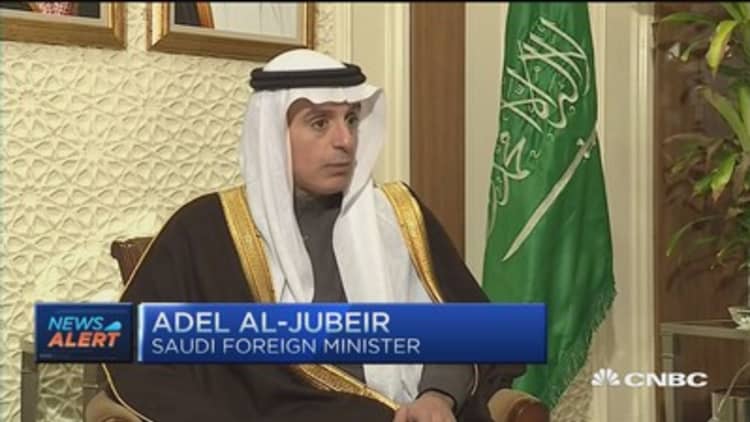


Conflict escalation between Saudi Arabia and Iran might be unpredictable and worrisome, it is not yet a case for alarm, former U.S. ambassadors told CNBC on Tuesday.
The OPEC members have motivations to get through this crisis, said James Smith, a former United States ambassador to Saudi Arabia.
"ISIS is a common threat to both Iran and Saudi Arabia," he said, speaking on "Power Lunch" Tuesday. "We need them talking."
Saudi Arabia's Foreign Minister Adel Al-Jubeir said on Tuesday that he doesn't know if Iran wants to combat ISIS.
While the row between Iran and Saudi Arabia boiled over after the execution of a Shiite cleric that lead to Iranian protesters storming into the Kingdom's embassy in Tehran, Smith does not consider the execution as a sectarian issue. Instead, he says it was an effort of internal stabilization by the Saudis.
"It's only the Iranian that looks at this problem through a sectarian prism," he said. "The 47 individuals who were executed, this was not a sectarian issue to [Saudi Arabia]; it was an internal stability issue by punishing terrorists and those who've incited terrorism."
The U.S. has yet to interfere, but another former U.S. ambassador to Saudi Arabia, Robert Jordan, says events like "the red line in Syria, the Iran nuclear deal and now the Iranian missiles this past week," have contributed to Saudi concern.
"At each turn, the Saudis see a weaker America, an indecisive America, and one that they can't really count on," he told CNBC on Tuesday.
Fears have reached investors who are eyeing oil in the event of a conflict escalation. In this regard, Jordan says the market has yet to see a full-on price war.
"... We haven't seen anything, yet," he noted. "I think the Saudis will keep the pedal to the metal, partly to punish Iran, and any of their collaborators, perhaps including Russia."
A possible conflict escalation isn't the only thing that worries investors. Last week Iran President Hassan Rouhani ordered its defense minister to expedite Iran's ballistic missile program.
Those focused on the nuclear agreement should pay attention to Iran's pattern of not protecting foreign embassies, Smith said.
"They have shown a willingness to break these agreements — they took our embassy in 1979, there was an attack on the British embassy in 2011, and now the incident with the Saudi embassy," he said. "What would we do when they do that in the nuclear deal?"




